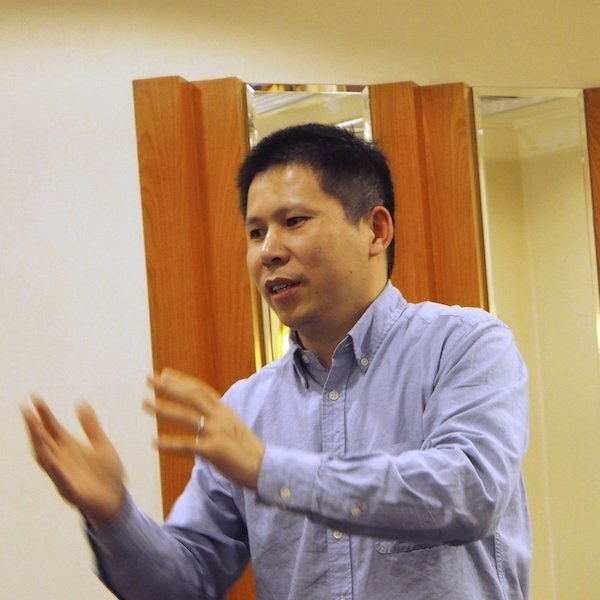By Jerome A. Cohen
Xu Zhiyong speaks during a meeting in Beijing in 2013. Xiao Guozhen via Reuters
The recent formal arrest of Xu Zhiyong raises questions about the relationship of the notorious Residential Surveillance at a Designated Location (RSDL) to the regular criminal process and other forms of Communist Party-police coercion. Xu has been held incommunicado since his February 15 detention. He was formally arrested for “inciting subversion of state power” last week and has now been reportedly placed under RSDL.
I have been under the impression that, under China’s Criminal Procedure Law, supposed “national security” suspects have often first been subjected to up to six months of RSDL. Then the police decide what the next step should be. That could be release with no further criminal processing, or the granting of the PRC equivalent of “bail”, or formal “arrest” followed by continuing detention while the case undergoes further investigation in preparation for the decision whether to indict and prosecute the suspect. “Bail” can also be granted after “arrest”. Whether granted before or after “arrest”, “bail” usually means that the case will be dropped quietly if the suspect does nothing objectionable to the police within the next year.
AMNESTY’s report on the fates of various lawyers detained by the police after their informal December 2019 meeting in Xiamen is worth reading. Although the bail for lawyers Dai and Zhang and the continuing detention of lawyer Ding for apparent prosecution seem consistent with what I know of the usual practice, I wonder about Xu’s case. Is he only now being sent to RSDL and after, not before, formal arrest? If that’s the case, under what authority was he held for the months since February 15?
The Public Order Administration Punishment Law only allows maximum police detention for 15 days for each minor offense. Might Xu have initially been held under RSDL and is he now being sent back for a second time after arrest? Such a maneuver would be a disturbing extension of police power.
Might Xu have been initially detained in accordance with the 2018 National Supervisory Law’s “liu zhi” sanction? Nominally, ”liuzhi” is not supposed to be “detention” but in fact it is another type of incommunicado confinement, one that is outside the Criminal Procedure Law. It is the successor to the Party’s long-feared “Shuanggui” that the Supervisory Law has authorized for applications far beyond those who are Party members.
Has anyone seen any details that might help explain Xu’s detention process and how the various sanctions available to the Party-state relate to each other? I have seen no indication that Xu might have been held under other supposedly non-criminal administrative provisions authorizing detention for prostitution, drug or other anti-social behavior or because of severe mental illness. Might the Amnesty report have simply made a mistake about Xu being sent to RSDL after arrest instead of being transferred now for likely indictment and trial?

